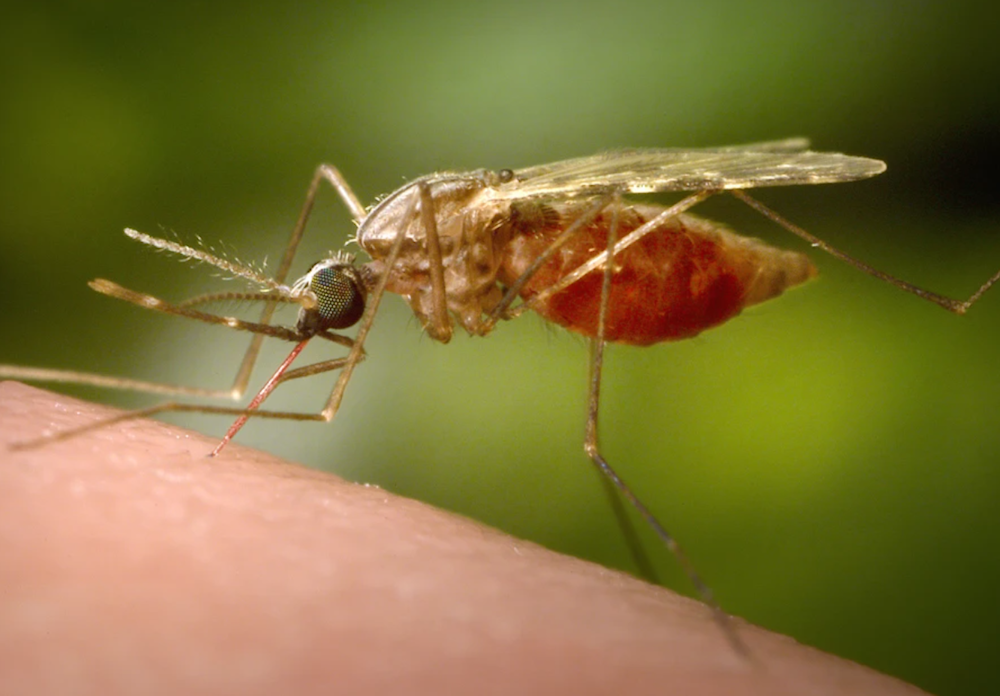Experts warn Dengue fever outbreak surge driven by climate change
Dengue fever cases in Samoa, Fiji, and Tonga have surged to the highest levels in a decade, with experts warning climate change is driving year-round transmission across the Pacific.
-

A female Anopheles funestus mosquito feeding in 2014. (CDC via AP)
Samoa, Fiji, and Tonga are battling their worst dengue fever outbreaks in a decade, with health experts warning that the climate crisis is fueling year-round transmission and intensifying the threat of mosquito-borne diseases across the Pacific.
Since January, Pacific Island countries and territories have reported 16,502 confirmed dengue fever cases and 17 deaths, according to the Pacific Syndromic Surveillance System (PSSS), which works with the World Health Organization (WHO). The WHO says infections are now at their highest level since 2016.
Samoa has reported over 5,600 cases and six deaths, including two siblings, since declaring an outbreak in April. Fiji has confirmed 10,969 cases and eight deaths, while Tonga has recorded more than 800 cases and three deaths since February.
Dr. Paula Vivili, deputy director general of the Pacific Community (SPC), said dengue outbreaks were once seasonal, but the climate crisis is altering transmission patterns.
“Due to climate change, transmission seasons are lengthening, and some areas are experiencing year-round dengue risk,” she said.
Climate change extends mosquito breeding seasons
Dengue fever is caused by a virus transmitted through the bite of infected Aedes mosquitoes. Rising temperatures, heavy rainfall, and higher humidity are creating ideal breeding conditions, even in areas previously unsuitable for transmission.
“Dengue is one of the first real disease-related phenomena that we can lay at the foot of climate change,” said Dr Joel Kaufman, an epidemiologist at the University of Washington. He noted that rainfall can hatch mosquito eggs and create stagnant water pools, while extreme weather patterns, from floods to droughts, can also accelerate transmission.
“It is in the vanguard of what will certainly be many types of human disease that become more common and more serious as the planet warms,” Kaufman warned.
Public Health Responses Struggle to Keep Pace
Samoa, the Cook Islands, and American Samoa have declared emergencies. Response measures have included clean-up campaigns, intensified surveillance, targeted spraying, and public health messaging. Tonga has partnered with the WHO, and Tuvalu has launched awareness drives. New Zealand has deployed medical teams and supplies to Samoa.
However, experts say these measures are often too reactive. Dr Bobby Reiner, disease ecologist at the Institute for Health Metrics and Evaluation, warned that “current disease surveillance systems are rarely sufficient to manage dengue,” with many mosquito control tools unproven to reduce transmission.
Pacific Island nations contribute just 0.03% of global greenhouse gas emissions, according to the Intergovernmental Panel on Climate Change (IPCC), yet they face some of the most severe climate-linked health risks.
Recent months have brought extreme rainfall to Palau, Papua New Guinea and Solomon Islands, while drought has gripped parts of the Marshall Islands, Papua New Guinea, Nauru and Fiji. Forecasts show these climate extremes will persist into October, further heightening the risk of dengue and other vector-borne diseases.

 3 Min Read
3 Min Read










